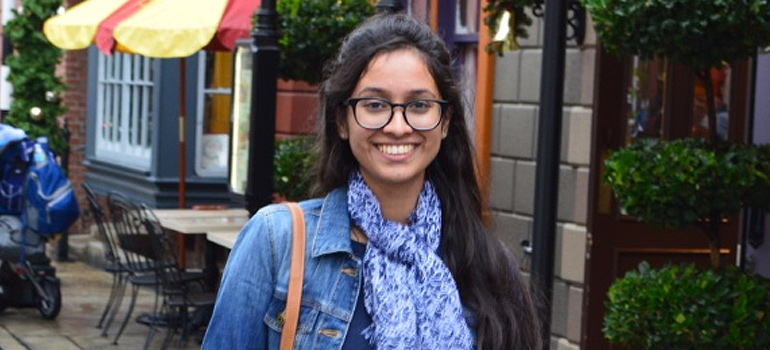Nithya Mahadevan was in her fifth year of working for Mu Sigma when she decided to go back to school to get her master’s degree.
She had held increasingly responsible positions in business analytics at Mu Sigma, a leading decision sciences and Big Data analytics company valued at more than $1 billion and backed by investors like Sequoia Capital and MasterCard. Before that, she had earned her undergraduate degree in electronics engineering at Visvesvaraya Technological University.
At Mu Sigma, she says “We were motivated to self-learn topics like machine learning and data mining. I wanted to do an advanced degree that would enable me to scale in the stream of decision sciences. I talked to people, trying to decide what I should do my master’s in. Some said business analytics, but I had just spent over four years in a company doing just that. My mentors back at Mu Sigma suggested that I look at operations research – and I started looking around.”
When her husband moved to Chicago, Illinois Tech came up on her radar, along with the master’s degree program in Computational Decision Science and Operations Research (CDSOR).
“What struck me about Illinois Tech’s CDSOR program was that the program was not just about operations research, but had this well-designed component of decision sciences,” she said. “I really like that it doesn’t just touch upon one aspect of computer science. The program provides a great mix of math, business, and computer science.”
Post her degree, she says, “I will have a wide range of opportunities that I can choose from. I could choose a career in business/strategy consulting, analytics, or even data science. The industry trend is shifting from companies outsourcing analytics/data science to companies setting up store in-house. Ideally, I would like to be someone who can help companies set up their analytics/data science in-house.”
Mahadevan already is finding opportunities to put her new knowledge to work, having secured an internship with Cars.com in Chicago this summer and fall. Currently, she is working on building an optimized ad targeting system for Cars.
During her program in spring 2017, she also worked with Computer Science Professor Sanjiv Kapoor, director of the CDSOR program, on a project involving revenue optimization for Sears, as well as other class projects.
Based on everything she has experienced so far, we asked her to explain how decision science differs from data science.
“To me, data science means number crunching—obtaining findings and insights from data,” she said. “Decision sciences, on the other hand goes one step further—how can data and intuition be used to arrive at important decisions in organizations/businesses?
“Data science, as the name suggests, relies purely on data—any kind of data can be crunched to study patterns. A decision sciences expert would require a deeper understanding of the business and industry along with data and other operational aspects in the organization. A decision scientist could be thought of as someone who has an ability to do number crunching as well as take a consultative role in the organization driving their business.
“To quote an example, assume you are working with the Head of Pricing at Amazon. As you may very well know, Amazon changes product pricing based on demand, competition, and various other factors. A typical problem that a decision sciences expert can solve will be, ‘How should Amazon approach product pricing for a particular apparel category, for maximizing profits?’ Here, I will delve into so many aspects of the business, like demand, supply, inventory, customer base, etc., etc. The problem has a wider scope within the organization. It would not just involve crunching historic data!”
She continued, “A typical problem that a data scientist will solve in such an environment would be, ‘How did customers react to a price change on the apparel that happened last week?’ This requires a person to look at historic data before and after the price change and obtain insights—no organizational decisions were impacted directly!”
Mahadevan noted that the CDSOR program links back to what she did at Mu Sigma, but formalizes her learning. “During my Mu Sigma days, I used to help U.S-based pharmaceutical companies arrive at business decisions regarding their drug sales and marketing,” she said “All my skillset and knowledge that I required at Mu Sigma was learned by me within Mu Sigma. I have been looking forward to having a formal educational degree in the field of decision sciences, and that is what I am getting from the CDSOR program.”


